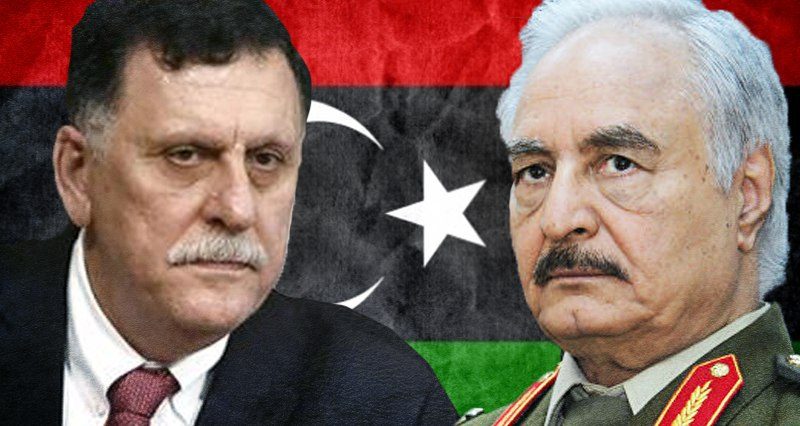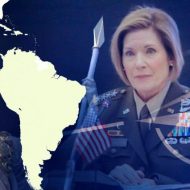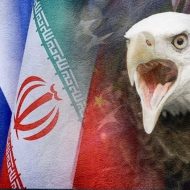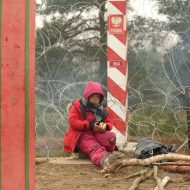On December 4, Al Arabiya reported that the GNA headquarters in Tripoli was surrounded by militants from Misrata. According to media reports, there have been armed clashes between the Presidential Council of Libya’s UN-backed Government of National Accord (Fayez Al Sarraj) and the armed gangs of Misrata. On December 8, representatives of GNA declared that Haftar’s forces had been prevented from entering Tripoli.
Context
On November 28, two memorandums were signed between Turkey and the Tripoli-based Government of National Accord (GNA). One of the memorandums concerned the delimitation of the maritime borders of the Mediterranean, a notable outcome.
This document, which is connected to Turkey’s naval geopolitical project Mavi Vatan, will strengthen Ankara’s influence in the Eastern Mediterranean and exacerbate the ongoing confrontation with the competing Israel-Greece-Egypt bloc. The agreement was immediately criticized internationally, not only by those directly affected (Greece/Egypt and Israel), but also by France (which has interests in the Mediterranean region and has long supported the candidacy of General Haftar in Libya), and also caused concern among the globalist elites of the United States (which, incidentally, recently held a meeting with Haftar in his residence in Libya). The document upset the agreements Greece, South Cyprus, Israel, Egypt had already concluded with the informal support of the United States and France over the past 10 years. Greece calls for the need to involve its senior partner, the United States, in resolving this situation. Macron expressed his support for the Greek side over the phone. The Israeli authorities declared that the move represented a direct threat from Turkey, arguing it would destabilize the region.
On December 5, the memorandum between Al Sarraj and Erdogan was ratified by the Turkish Parliament. According to the UN Convention on Maritime law, a country’s borders usually stretch into its territorial waters for 12 nautical miles, while in exclusive economic zones (where a country has the right to fishing, mining and drilling) this area can stretch for another 200 miles. If the distance between the two countries is less than 424 miles, a bilateral agreement is needed to determine the mutually agreed dividing line(s) for their respective exclusive economic zones. Turkey has the longest coastline in the Eastern Mediterranean region, which gives it the full right to search for minerals in the eastern Mediterranean region in accordance with international law. The situation is further aggravated by the presence of the Turkish Cypriot Government in Northern Cyprus.
Türkiye-Libya mutabakat muhtırasının yürürlük tarihi belli oldu https://t.co/L47mLuAhha#Türkiye #Libya #mutabakat #yürürlük
— Aydınlık (@AydinlikGazete) December 12, 2019
General Haftar has condemned the agreement, saying it was the implementation of a plan to rebuild the Ottoman Empire.
Misrata as a source of instability
The Misrata militia fighting near Tripoli is made up of a variety of radical organizations. Up to the last moment, the head of the GNA was able to conclude cooperation agreements with them and work jointly to repel General Haftar’s attacks… however, the links between some militia groups and terrorist organizations have left the situation spiraling out of control. In October 2016, some of the militants attempted to overthrow Sarraj, advocating for the former National Salvation Government, Khalifa Al-Ghweil.
The arrival of Misrata’s militia in Tripoli six months ago led to a sharp increase in crime in the city. Robberies and murders have increased dramatically. Fathi Bashaga, (who recently became GNA Interior Minister under pressure from militants on Sarraj), might also have been involved in the attack on GNA headquarters. The militants under his control appear in several United Nations Security Council reports where they are described as murderers, traffickers and rapists. There is also circumstantial evidence suggesting their possible cooperation with DAESH.
DAESH (the Algiers branch), ex-Beit al-Maqdis (a group that became a branch of ISIL, renaming itself ISIL-Sinai Province), al-Qaeda (the Islamic Maghreb branch plus the al-Murabiteen Army), and the presence of terrorists linked to Hesham Ashmawy in the region (captured by Haftar’s forces in Derna) are all present in Misrata. Ironically, Misrata’s Mahjub Brigade had been countering the spread of DAESH in the region for quite some time.
It is likely that the coup attempt is linked to the recent memorandum on maritime boundaries signed between Erdoğan and Sarraj, which has an open anti-American geopolitical agenda. According to sources within President Erdogan’s administration, the coup attempt could have been initiated by globalist structures using terrorists and militants as proxies to respond to issues of political dominance in the Maghreb countries and the Middle East. The presence of many ethnic and religious disputes and the preservation of tribal structures has opened the region up to proxy-wars led by foreign states. The overthrow of Gaddafi in 2011 reactivated the country’s pre-existing contradictions and strengthened the influence of Islamists on tribal structures. Western powers played a strong role in this split, providing economic resources, as well as ideological and diplomatic support to different groups (Saudi Arabia, UAE, Jordan, the United States, the United Kingdom, Algeria and Egypt are active in the region, using different tribal groups as proxies). Haftar began his military campaign ‘Karama’ (Operation Dignity 2014) as a fight against political Islam, but his attack extended beyond radical groups like al-Qaeda: more moderate groups associated with the Muslim Brotherhood also fell into the category of ‘dawa’ish. Haftar is a strong proponent of secular politics– his agenda is significantly weakened by the fact that it more or less ignores the diversity of Islamic movements in the region. Haftar is supported by the UAE, Egypt, Saudi Arabia, France and Jordan, while Sarraj is supported by Great Britain, Algeria,Turkey and Qatar. In response to Haftar’s operation, the Muslim Brotherhood and part of the Misrata militia formed a military alliance and launched Operation Fajr.
📺#Biz10TV ‘de @haskologlu ‘nun Konuğu Cem Gürdeniz
🔹Yunanistan ile Kıta Sahanlığı Sorunu
Gürdeniz: Türkiye üzerinde 2. Sevr’i kabul ettirmeye çalışıyorlar. 1.Sevr anavatanımızdı 2. Sevr ise Mavi Vatan!
Tamamı https://t.co/TPB54Wvmxx pic.twitter.com/YAFvzKA3hw
— Biz10 TV (@Biz10TV) December 10, 2019
The conflict between Sarraj and Haftar is also a conflict between two heterogeneous regions, one dominated by Islam and the other by more secular ideology. This conflict is consistently exploited by outside powers interested in controlling Libya.
How can Turkey influence the Libyan crisis?
The recent agreement between the GNA and Turkey is an important step toward obtaining geopolitical approval for the Mavi Vatan doctrine in the Mediterranean. Turkey should serve as a mediator in the Libyan conflict, and help facilitate negotiations between Sarraj and Haftar. Haftar’s support is quite high (especially in the East), which means that Turkey would need to work with both poles to help in a reconciliation process. Today, the unresolved situation in Libya has created a hotbed for the growth of terrorist groups and represents a serious danger to the security of the North African region.
The situation in Libya today is a direct result of the West’s campaign to overthrow Muammar Gaddafi, a project which plunged the country into a bloody civil war. Ultimately, the unresolved conflict that is ripping Libya apart is a logical consequence of the West’s obstinance and the US’ unapologetic drive for global hegemony which it pursues with complete disregard for international legal norms. In order to overthrow Gaddafi, the West backed extremist forces with terrorist ideologies and criminal methods, ignoring the diversity of the religious map of Libya (for example, Sufi associations were immediately attacked. Saudi Arabia’s Madhalists skillfully waged war against them, up to the destruction of Senussi holy places). After stoking chaos, the West left Libya and its people at the mercy of fate. It is now clear that this extremely complex and tragic regional crisis has to be resolved by someone other than those who created it in the first place. It is important that Turkey serves as a mediator in the peace process. Turkey is in a good position to broker an agreement given that it is increasingly moving away from the West, strengthening its sovereignty and becoming one of the most active forces in counter terrorist operations (such as those targeting the YPG/PKK/FETO). These terrorist groups are still being used by the West as proxies to achieve its goals in the Middle East, showing that Washington has learned nothing. Turkey has a vital interest in strengthening its position in the Eastern Mediterranean, and Libya is of critical strategic importance to achieving this goal.









Leave a Reply